American Climate Perspectives Survey 2023, Vol. I
Climate Change: The More You Know, The More You Care
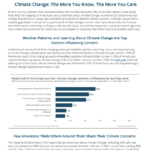
As the country recovers from extreme winter storms that disrupted life across the nation, a new study finds that the majority of Americans are concerned about climate change. ecoAmerica’s latest American Climate Perspectives Survey also identified driving forces behind climate concern. Findings reveal that a notable gap exists in actual versus perceived climate change concern and many Americans don’t know what their local community is doing to address the issue. And, while companies and government agencies have rolled out incentives for Americans to participate in solutions, few think they’re accessible right now.
Weather Patterns and Learning About Climate Change Are Top Factors Influencing Concern
ecoAmerica’s survey finds that changing seasonal weather patterns, learning more, and experiencing a climate change related event are top factors that influence levels of climate change concern. 54% of Americans report that changing seasonal weather patterns influence their concern. 45% of Americans report that learning about climate change influences their concern, up from 33% who last year said that seeking out information about climate change was influential. 41% of Americans say that experiencing a climate change related event plays a role.
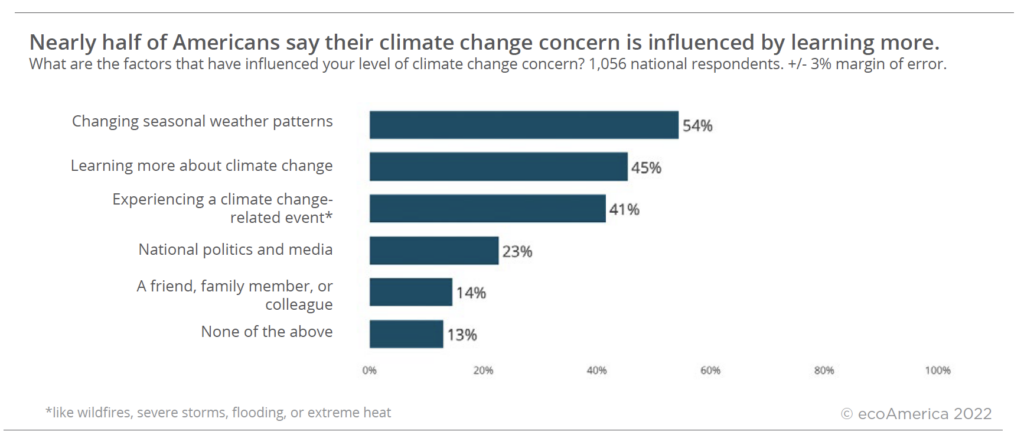
Few Americans Think Others Around Them Share Their Climate Concerns
The majority of Americans (72%) report being concerned about climate change, including 42% who are very concerned and 30% who are somewhat concerned. Another 16% are “a little” concerned, totaling 88% overall. Only 12% report that they are not concerned about climate change. Although there is a high level of concern amongst Americans, few believe their peers feel the same. Just about half of Americans (52%) believe that others around them are concerned about climate change.
Only 14% say that others around them are “very” concerned when in reality, three times that number of Americans report this level of concern. ecoAmerica’s survey finds that many Americans feel comfortable talking about climate change with their friends and family but far fewer are comfortable talking about the issue with other social circles like their neighbors, co-workers, and elected officials. If more Americans join in climate conversations with the people around them, this gap in perception versus reality may begin to close.
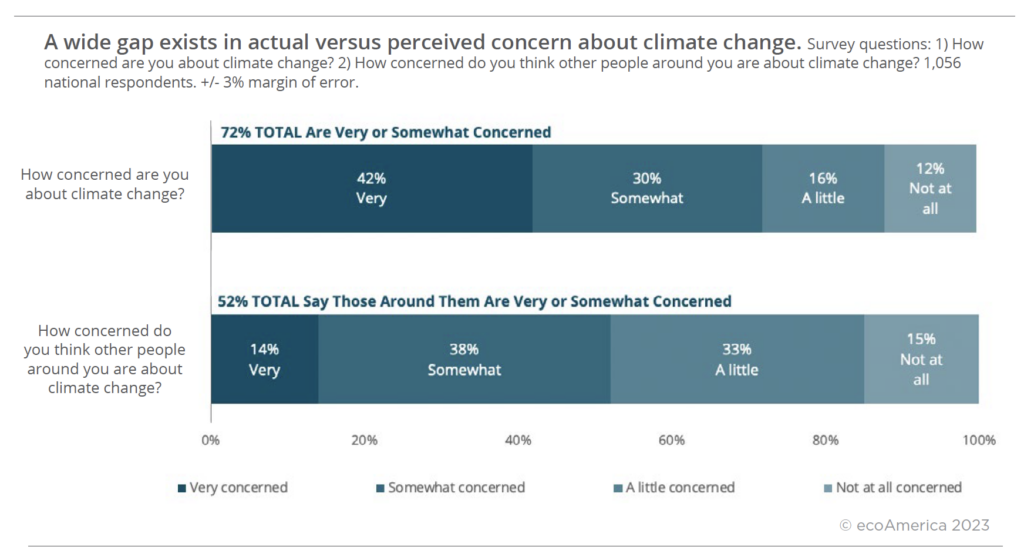
Residents Need to Hear From Their Leaders on Local Climate Solutions
Americans are noticing weather patterns changing around them but do they believe leaders are doing enough to address it? ecoAmerica asked Americans how satisfied they were with the action their local community is taking to address climate change. Roughly one third reported satisfaction — only 8% said they were “very” satisfied and 23% said they were satisfied. Similarly, about one third reported dissatisfaction with 8% being “very” dissatisfied and 21% being dissatisfied.
The remaining 40% of Americans said they don’t know what their local community is doing to address climate change. Across demographic groups including political affiliations, age, and sex, between 33-50% of Americans report being unaware. This presents an opportunity for education and a call to action for local leaders to communicate with their constituents on climate policies and programs, including how solutions are being rolled out and the ways in which residents can participate and benefit.
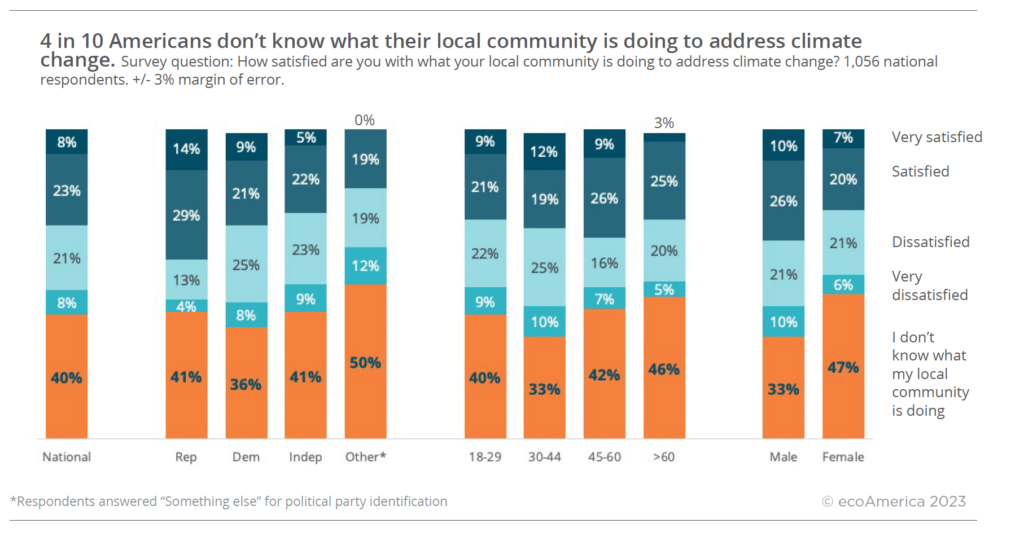
Solar Energy and Electric Vehicles Are Viewed as Inaccessible
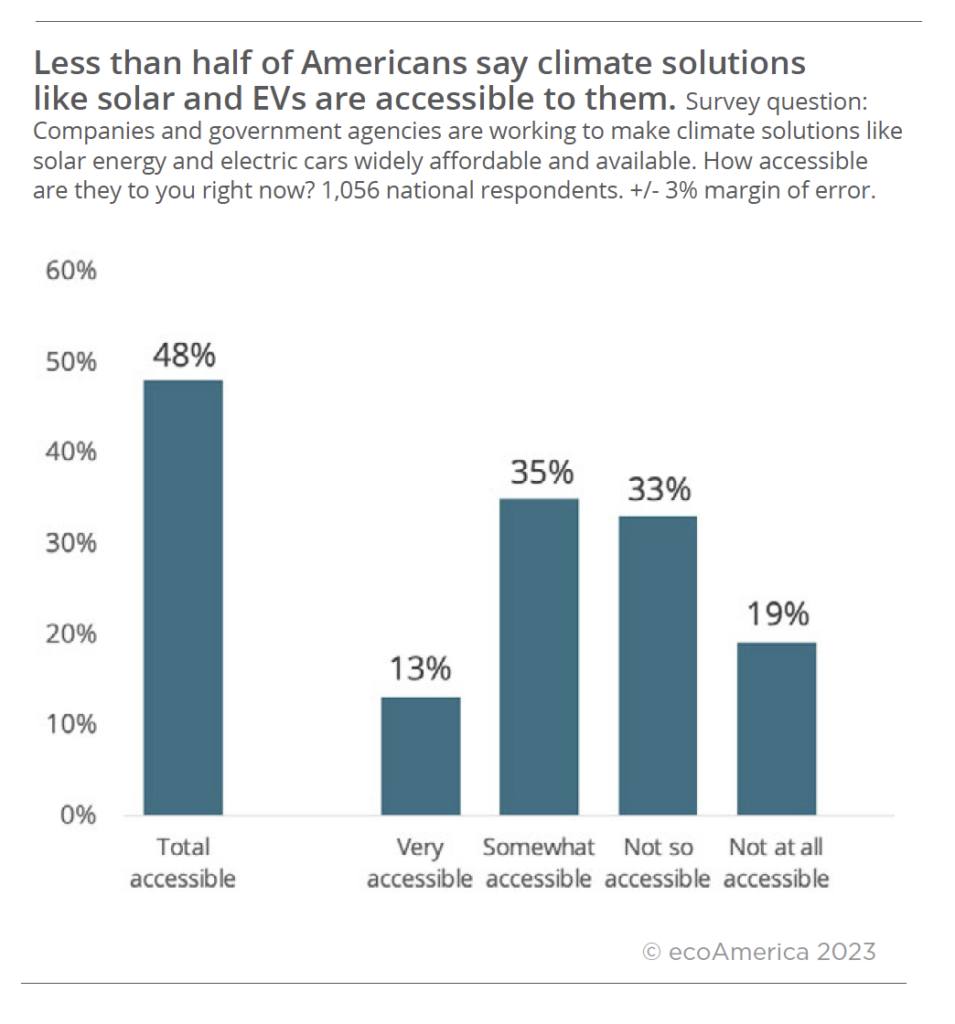
Since the Inflation Reduction Act was passed, companies and government agencies are working to make at-home climate solutions like solar energy and electric cars more affordable and available. However, when ecoAmerica asked Americans if these types of solutions are accessible to them right now, more than half (52%) thought “not.” Only 13% said they were very accessible while 35% said they were somewhat accessible (48% total accessible).
Household income and age highlight disparities in reported accessibility. For instance, compared to other household income brackets, more Americans in the $200,000+ group report that solar panels and EVs (electric vehicles) are accessible to them right now (62%). This is as much as a 19-point difference in reported accessibility compared to people with household incomes ranging from $0-$49,000, who report total accessibility ranging from 43% – 46%.
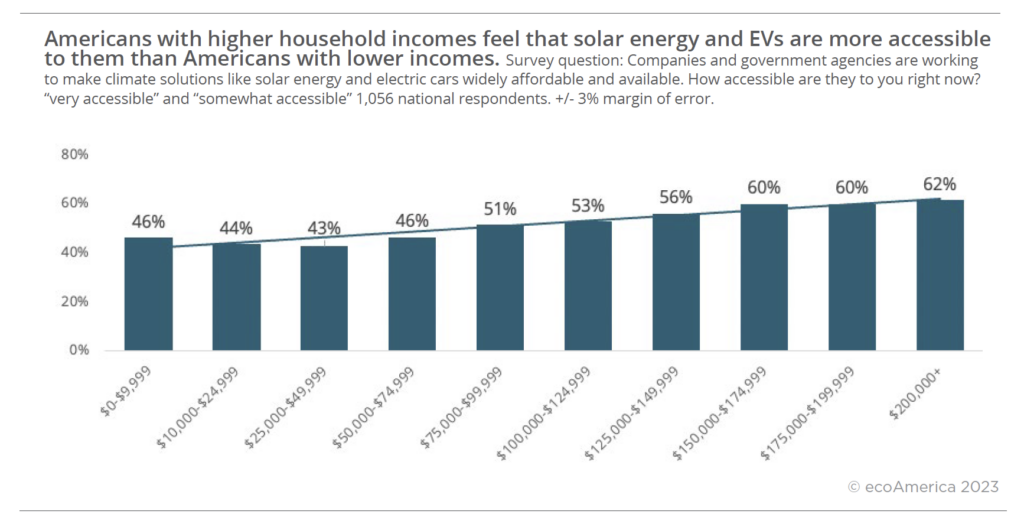
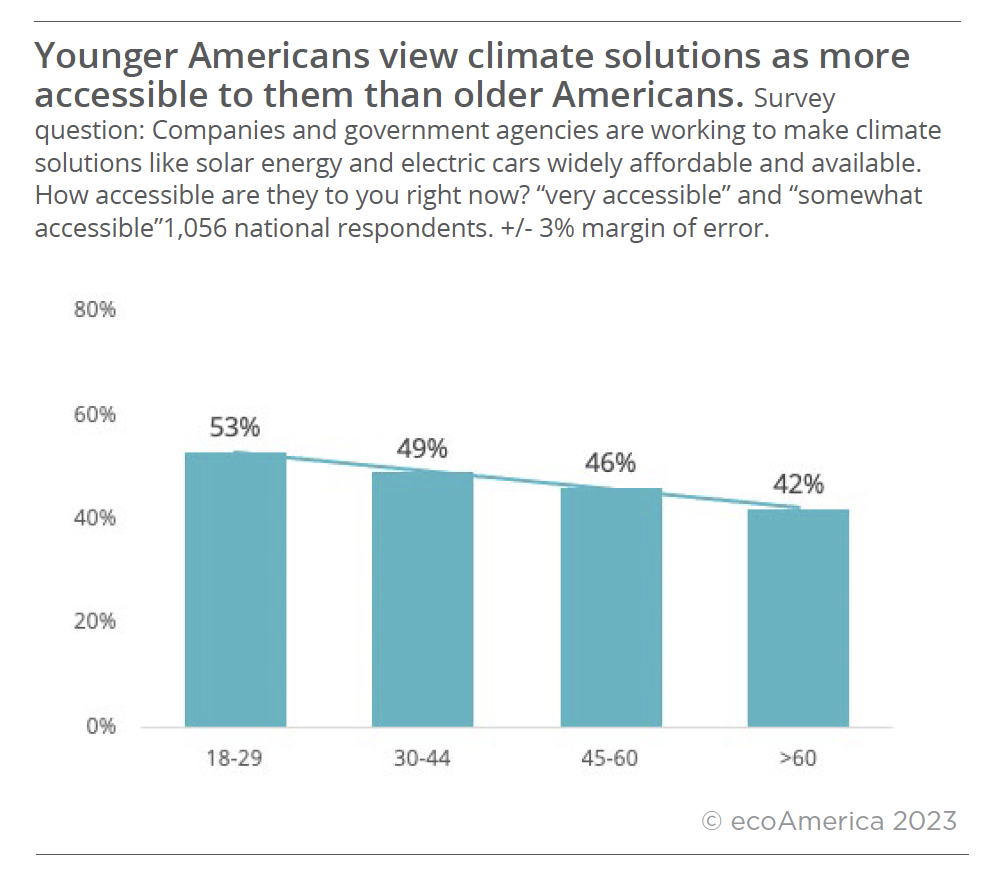
While reported accessibility trends up with income, the opposite is seen with age. Americans in the youngest age group (18-29) view climate solutions like solar energy and electric cars as more accessible (53%) to them right now. In contrast, only 42% of Americans over the age of 60 say these solutions are accessible, highlighting an 11-point difference. Americans in the 30-44 age group and 45-60 age group fall in between, at 49% and 46% respectively. These findings highlight that while programs are rolling out to make at-home climate solutions more widely available, there is work to do to ensure they are accessible to a broader diversity of Americans.
Full data featured in this blog is available in the accompanying toplines.
Share these findings on Social Media! Click here for the social toolkit, including:
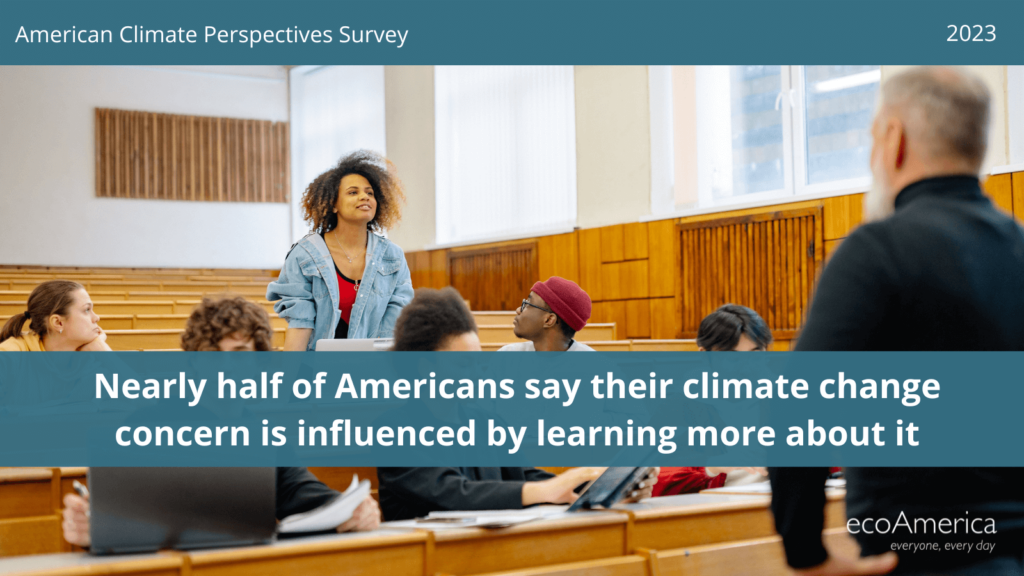
Methodology
ecoAmerica designed and administered this survey, which was conducted online on January 5-6, 2023 using Survey Monkey. The survey yielded a total of 1,056 complete adult responses and used the Census Bureau’s American Community Survey to weigh the national general population and reflect the demographic composition of the US. The sample was drawn from an online panel and the respondents were screened to ensure that they were over the age of 18. The margin of error for the sample is +/-3%. In interpreting the survey results, it is important to note that all sample surveys are subject to possible sampling error. Thus, the results of a survey may differ from the results that would be obtained if the entire population was interviewed. The size of the sampling error depends upon both the total number of respondents in the survey and the percentage distribution of the responses to a particular question. For example, if 50% of the respondents in a sample of 1,066 respondents answered, “Yes” to a particular question, we can be 95% confident that the true percentage would fall within 3 points, or range from 47% to 53%.
Suggested Citation
Speiser, M., Hill, A. N. (January, 2023). American Climate Perspectives Survey 2023. Vol I. Climate Change: The More You Know, The More You Care. ecoAmerica. Washington, DC.
© 2023 ecoAmerica. The contents of this report may be shared and used under a Creative Commons Attribution Non Commercial NoDerivatives 4.0 International License.
For more information contact us at research@ecoAmerica.org.
Subscribe to receive ecoAmerica’s research in your inbox.